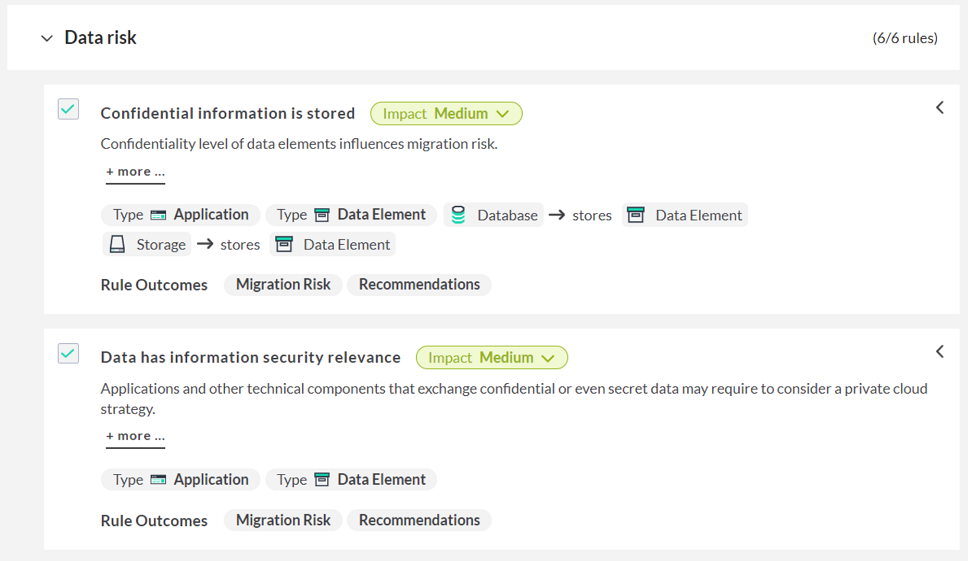How the Txture platform helps you lead your team through a cloud transformation

While we regularly write about the technical difficulties of a cloud migration, we sometimes forget that moving to the cloud is also a personal challenge for most members of an organization. Cloud Transformation comes with a disruption of many existing processes, and with a change of habits not only for the IT department, but also from the organization as a whole.
Naturally, this can lead to uncertainty, skepticism and resistance. Therefore, in addition to making the right migration decisions, companies that will focus on human support during the transition period will maximize the success of their cloud transformation initiatives.
In this article, we wanted to highlight the value of using a cloud migration planning software like Txture to facilitate change management in the context of a cloud transformation. We are going to discuss three main guidelines for change management, and explore how the platform can help you implement these guidelines successfully.
1 - A change is better accepted if the future situation is clearly understood
The psychology behind it
You probably know from your own experience that the human brain is a huge fan of status quo. Actually, we love status quo so much that, even when we perceive change as positive, we are still reluctant to leave our once-comfortable habits.
As a cloud transformation sponsor, you should not underestimate this: even stronger advocates of a move to the cloud will experience ups and downs during the transition process.
Start with concrete pilot projects and business cases
Of course, you cannot draw a perfectly accurate picture of your future cloud infrastructure, while the transformation project did not even start. But you can start by focusing on specific business cases inside the organization, and use them as pilot projects to assess the value of cloud adoption.
Using the Txture platform, you can quickly build business cases for a subset of your applications.
The platform supports a wide range of data sources and helps you collect information about your existing applications. This information is compiled in a central repository where you get a clear picture of the application’s current state.
Another valuable feature is the assessment rule system, that enables to assess your migration’s preferences according to a large set of criteria.
Unlike most solutions, Txture’s assessment preferences help you analyze your application not only from a technical perspective, but also from a business and security standpoint. Do you have a preferred cloud provider? Is the application processing sensitive data? How critical is sustainability in your decision-making? All of this can be defined with the assessment rules.
Based on the data you collected, and your assessment preferences, the platform generates cloud architecture alternatives that you can compare from various angles. Each alternative comes with detailed insights into the price and pricing model, list of features, carbon footprint, and much more.
 Comparison view of cloud architecture alternatives from different cloud providers.
Comparison view of cloud architecture alternatives from different cloud providers.
 Example of a bill of materials generated by the Txture platform.
Example of a bill of materials generated by the Txture platform.
A pilot project based on concrete business cases is a powerful tool to help teams project themselves into the future and get a more concrete idea of what a transformation entails.
To go more in-depth, have a look at Txture whitepaper: Principles of change Management, and why it matters.
2 - A change is better accepted if people can actively participate in its implementation
The psychology behind it
People will take ownership of the project more easily, and not experience it as a constraint if they have decision-making power in the implementation approach. Which is why, even if the transformation itself has already been decided, the way to achieve this transformation must be, as much as possible, co-built with the teams.
Use Txture as a central transformation cockpit to gather stakeholders together
Bringing all stakeholders together in a cloud transformation project is not so easy. Txture acts as a central communication platform and data hub for reporting, analyses, and decision-making. It allows every user to have the same overview of the as-is situation, as well as the ongoing activities and the migration decisions that were already made.
 The platform acts as a central transformation cockpit for collaboration and reporting.
The platform acts as a central transformation cockpit for collaboration and reporting.
For example, application owners can see the current status for their own set of applications. They can add information about the current architecture of the application, and alert on some important aspects: for instance, an application’s dependency to other assets. They can also specify the application’s technical requirements, as well as the compliance certifications needed. The input provided will have an impact on the migration strategy recommended by the platform.
 Example of criteria related to data risk in the assessment preferences section.
Example of criteria related to data risk in the assessment preferences section.
To go more in-depth, have a look at our 4-step action plan to lead change successfully during a cloud transformation.
3 - Upskilling people is key to make the transformation happen
The psychology behind it
In order to embrace a change, people need to understand the reasoning behind the transformation. A key enabler for that is to provide a introductory course on the topic of cloud transformation to a maximum of people around the organization. For people who will actually implement the transformation, a more in-depth training is obviously needed.
Learn more about Txture certification courses
In addition to its software platform for successful cloud transformations, Txture is providing its customers with a certification program. We divided the course catalog into two different levels: an introductory course and an expert training course.
The introductory course is intended to raise awareness around the principles of cloud transformation, and can help you educate a large number of people inside your organization. The expert course is meant to empower IT professionals across the transformation journey, and help them enhance their cloud transformation skills.
For an organization willing to achieve a large-scale transformation, implementing these two levels of training is key to accelerate cloud adoption among all teams.
Learn more about Txture certification program.
Seeing is believing!
If you want to learn more about the Txture platform’s capabilities to accelerate your journey to the cloud, don’t hesitate to reach out to us, and we’ll be happy to answer your questions!
Related posts
29.4.2025Application ModernizationDefine your scope for IT modernization2.3.2025
Cloud StrategySelecting the right cloud data center for hosting your workloads27.6.2024
Cloud optimizationA great driver to maximize cloud value: moving to instances with modern processors 24.5.2024
Cloud Knowledge5 best practices to manage change during a cloud transformation5.4.2024
Generative AIHow to welcome Generative AI into your existing tech ecosystem

